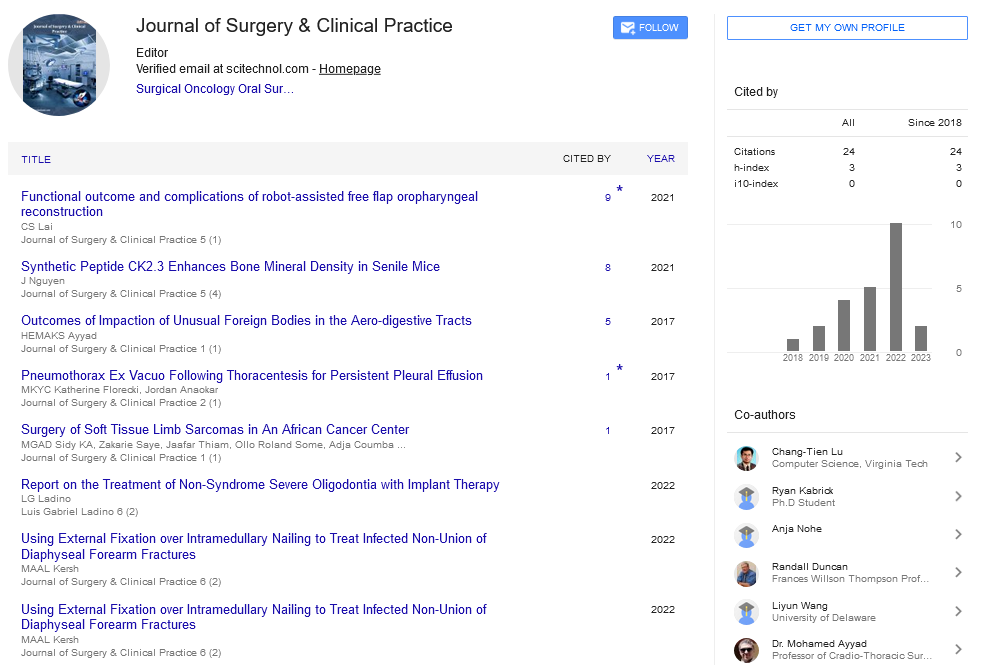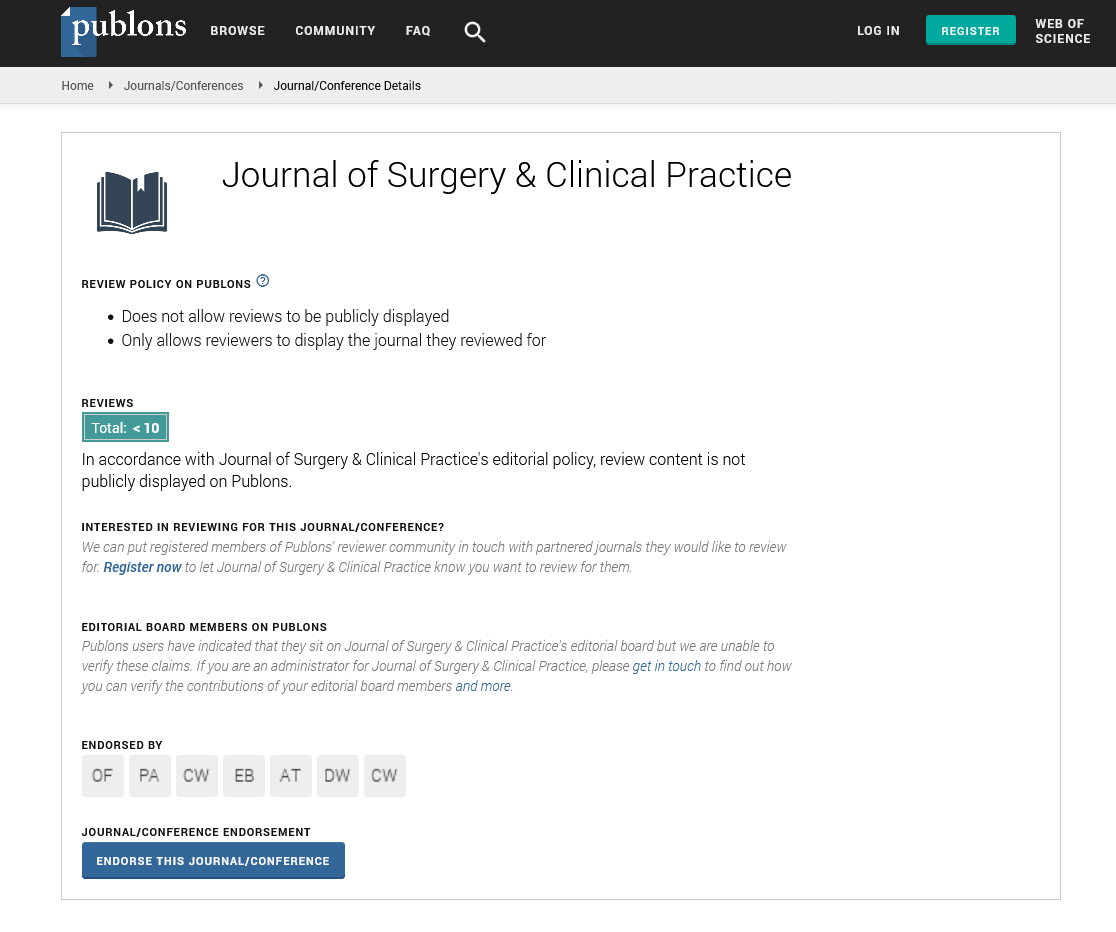Opinion Article, J Surg Clin Prac Vol: 7 Issue: 3
Importance of Cataract Surgery in Restoring Vision and Quality of Life
Michael Grant*
1Department of Medicine, Johns Hopkins University School of Medicine, Baltimore, USA
*Corresponding Author: Michael Grant,
Department of Medicine, Johns Hopkins
University School of Medicine, Baltimore, USA
E-mail: michael@surg.edu
Received date: 23 August, 2023, Manuscript No. JSCP-23-117722;
Editor assigned date: 28 August, 2023, PreQC No. JSCP-23-117722 (PQ);
Reviewed date: 11 September, 2023, QC No. JSCP-23-117722;
Revised date: 18 September, 2023, Manuscript No. JSCP-23-117722 (R);
Published date: 25 September, 2023 DOI: 10.35248/JSCP.23.7.1000387
Citation: Grant M (2023) Importance of Cataract Surgery in Restoring Vision and Quality of Life. J Surg Clin Prac 7:3.
Description
Cataracts, a clouding of the eye's natural lens, affect millions of people worldwide, leading to blurred vision and, in severe cases, blindness. However, in modern medicine, cataract surgery has become one of the most common and successful procedures, dramatically restoring vision and significantly enhancing the quality of life for those affected. Historically, cataract surgery involved crude and often risky techniques, such as couching, where a blunt instrument was used to push the clouded lens aside. Over centuries, the field of ophthalmology advanced, and cataract surgery evolved into a highly sophisticated procedure. Modern cataract surgery is a testament to medical progress, blending precision, technology, and expertise to ensure optimal outcomes.
Phacoemulsification or phaco is the most common technique used in cataract surgery today. In this procedure, a tiny ultrasonic probe breaks the cloudy lens into small fragments, which are then gently suctioned out. This technique, performed through a small incision, promotes rapid healing and reduces the risk of complications. Femtosecond laser technology adds an extra layer of precision to cataract surgery. The laser creates precise incisions, softens the cataract, and accurately positions the Intraocular Lens (IOL). This technology enhances the predictability of outcomes, allowing surgeons to customize the procedure for each patient. Cataract surgery offers more than just improved vision; it brings clarity to a world that was once blurred. Patients often describe the post-surgery experience as transformative, allowing them to see the world with renewed vividness and detail. Restored vision promotes independence. Patients regain the ability to perform daily tasks without assistance, such as reading, driving, and recognizing faces. This newfound independence profoundly impacts their confidence and self-reliance. Beyond the physical aspects, cataract surgery significantly enhances the overall quality of life. Patients experience improved mental health, reduced anxiety, and an increased sense of well-being, leading to a more fulfilling and active lifestyle.
Pre-operative evaluation is essential. Surgeons assess the patient's overall health, ocular conditions, and lifestyle to choose the most suitable IOL and surgical approach. Personalized care ensures optimal outcomes tailored to each patient's needs. Following surgery, diligent post-operative care is essential. Patients receive guidance on eye drops, activity restrictions, and follow-up appointments. Monitoring for potential complications, although rare, is vital to maintaining the integrity of the surgical outcome.
Cataract surgery stands as a better hope for millions affected by this common age-related condition. Through precision techniques, advanced technology, and compassionate care, cataract surgery not only restores vision but transforms lives. The impact is not limited to the individual alone; it ripples through families and communities, as patients regain their roles as caregivers, contributors, and active members of society. As the field of ophthalmology continues to advance, cataract surgery will only become more refined and accessible. The continuous pursuit of innovation and the commitment to patient-centric care ensure that this transformative procedure will continue to enhance vision, restore independence, and elevate the quality of life for countless individuals around the globe. With each successful surgery, the world becomes a clearer, brighter place for those once hindered by cataracts, reaffirming the profound impact of medical science on human well-being.
 Spanish
Spanish  Chinese
Chinese  Russian
Russian  German
German  French
French  Japanese
Japanese  Portuguese
Portuguese  Hindi
Hindi 
